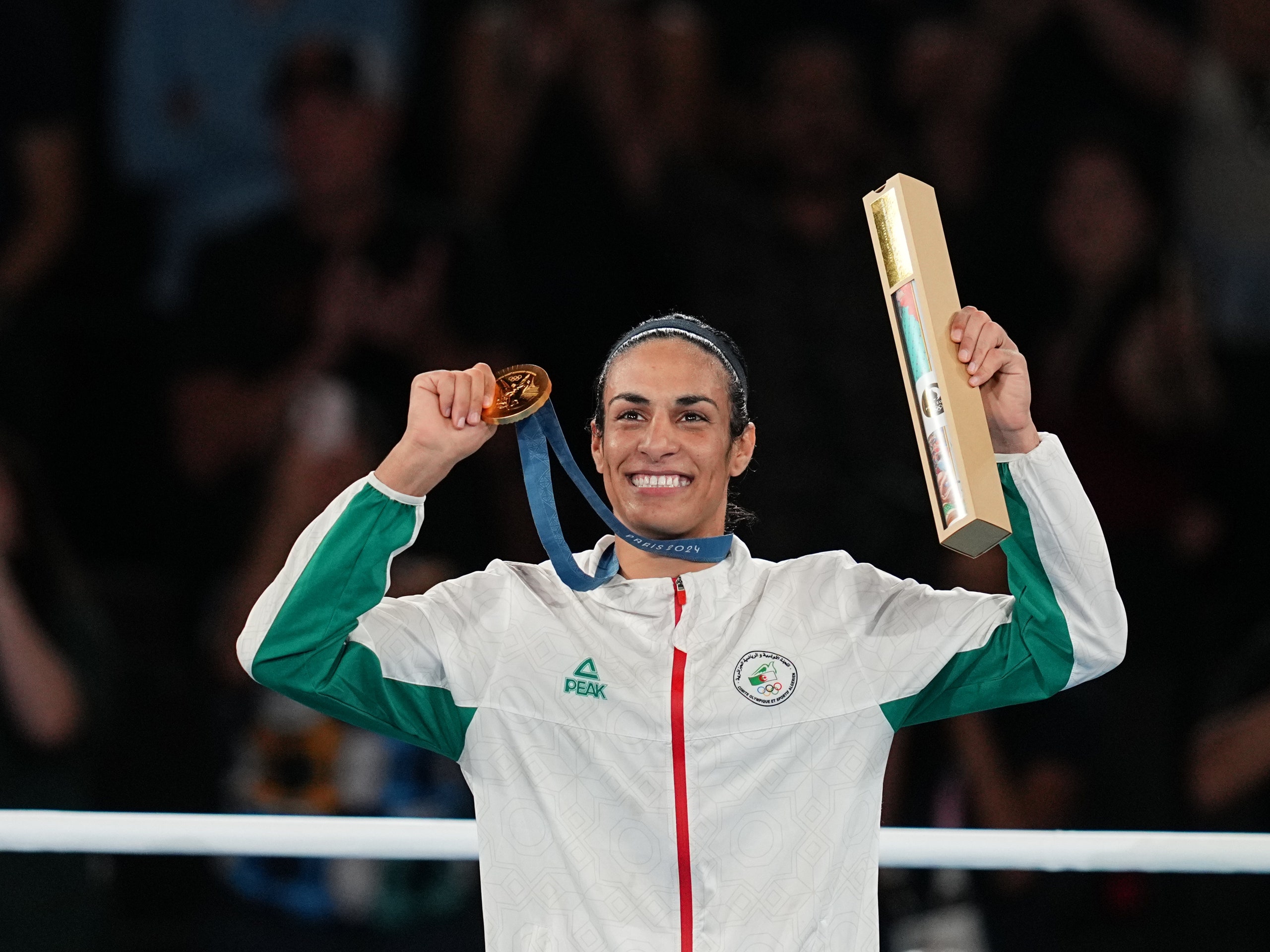Products are independently selected by our editors. We may earn an affiliate commission from links.
Algerian boxer Imane Khelif has won an Olympic gold medal—her country’s first for women’s boxing—after defeating the world champion Yang Liu of China in the women’s 66kg category.
“As for whether I qualify or not, whether I am a woman or not, I have made many statements in the media,” Khelif said after her victory, which had a “special taste” because of the controversy surrounding her competition. “I am fully qualified to take part. I’m a woman like any other woman. I was born a woman, I lived a woman, I competed as a woman, there’s no doubt about that.”
The 25-year-old previously finished in fifth place in the 60kg division in Tokyo 2020. Despite making history with her successes, the Algerian athlete’s victories have been partly overshadowed by a media storm since August 2, when Italy’s Angela Carini pulled out of their fight after just 46 seconds, claiming she had “never felt a punch like [it] in my life.” Her words were promptly used to justify widespread speculation about Khelif’s identity—including the mistaken assertion that she is transgender—and triggered a wave of discourse around women and sport, much of it vitriolic, with decidedly sexist, transphobic, and racist overtones.
Further fuel has been added to the fire thanks to the lack of alignment between the International Olympic Committee and the International Boxing Association. The latter banned Khelif from competing at the 2023 Women’s World Championships in New Delhi after she reportedly failed eligibility tests, but the accuracy and validity of those assessments is hotly debated—and although IBA president Umar Kremlev has claimed that Khelif has XY chromosomes, this has yet to be substantiated by Khelif herself, who was born, raised, and identifies as a woman. Critically, the IBA is no longer recognized as a legitimate governing body by the Olympic games, in part due to a perceived lack of integrity and transparency around its practices—a decision upheld even after the IBA legally challenged the IOC on the matter through the Court of Arbitration for Sport this spring.
As for the criteria for women’s boxing at Paris 2024: typically, the Olympics requires International Sports Federations (e.g., World Athletics) to decide an individual’s eligibility for gender categories in their respective sports. However, since the IBA no longer has Olympic oversight, the IOC’s own members determined that all qualifying competitors would be accepted for women’s boxing, assuming their passports identified them as female. IOC President Thomas Bach has wholeheartedly defended Khelif’s right to compete under these guidelines, which—to be clear—would allow her to participate regardless of whether she has any form of DSD (Differences in Sex Development) or not.
Impressively, Khelif has remained a model of good sportsmanship throughout all of this. “I send a message to all the people of the world to uphold the Olympic principles and the Olympic charter, to refrain from bullying all athletes, because this has effects, massive effects,” she told the Associated Press’s SNTV earlier in the Paris competition. “It can destroy people, it can kill people’s thoughts, spirit, and mind. It can divide people. And because of that, I ask them to refrain from bullying...” She also thanked the Olympic committee for its continued support. “I am grateful to the IOC, who spoke the truth,” she told reporters in the Olympic Village. “I am very proud to represent Algeria. Thanks to God, this is the first women’s medal for boxing in Algeria. In the Olympics, there are no easy passes.”
Carini, meanwhile, has apologized for her role in initiating the backlash: “All this controversy certainly made me sad, and I also felt sorry for my opponent. She had nothing to do with it and, like me, was only here to fight,” she reflected while speaking to the Italian newspaper Gazzetta dello Sport. “It was not intentional; in fact, I apologize to her and to everyone… I was angry, because my Games had already gone up in smoke. I have nothing against Khelif; on the contrary, if I happened to meet her again, I would give her a hug.”
